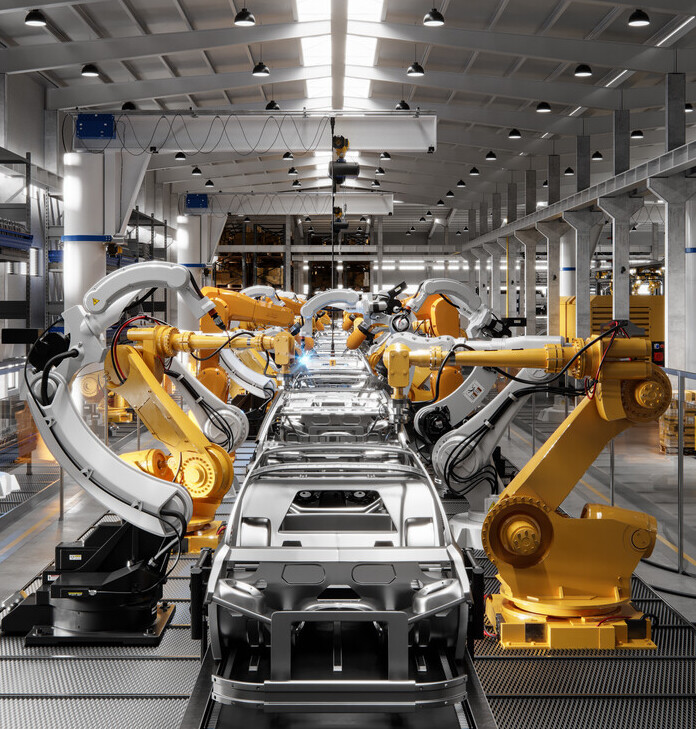Automotive Global HR Trends Report – 2024 EDITION
Steer the
future of Automotive
Automotive Global HR Trends Research
– 2024 EDITION
Steer the
Future of Automotive

The automotive industry has seen a decline in the last four years, made evident by a loss of revenue and fewer vehicles being manufactured. While the global economy has affected most sectors to some degree, automotive has experienced some unique challenges.
Read the comprehensive 2024 Automotive Global HR Trends report, featuring data from 11 countries and over 6,500 industry decision makers and candidates:
- Understand the challenges unique to the industry
- Discover opportunities for innovation and growth
- Explore the trends in a rapidly changing sector
Flip the pages to see the Report preview below
The Automotive Industry is Undergoing a Transformation
As the world gears to reach net-zero, with Europe banning the sales of CO2-emitting cars in 2035, the automotive sector finds itself contending with the competing demands of digitization and environmental sustainability, against a backdrop of already significant economic challenges exacerbated by the COVID-19 pandemic and the several conflicts around the world. Considering how big the automotive industry is, this can be a sizeable challenge – an opportunity.
satisfied with their jobs
Technological Advances Significantly Impact the Sector
Automotive companies are moving away from traditional gas and fuel-powered vehicles and placing increased focus on EVs, reducing traditional manual labour needs, and creating a growing need for technical workers with expertise in software engineering, data science and connected technologies.
Technological advances have had a significant impact on the sector, with the industry increasingly embracing automation in manufacturing processes. This has given hope for those who wonder how and why the automotive industry is still important for the economy.
On the other hand, the report reveals that those hardest hit by automation are manual workers and engineers, while creating a higher demand for professionals who have expertise in managing automated systems and optimising production efficiency.
The most in-demand blue collar roles are mechanical technicians and maintenance technicians, while automotive engineers and IT specialists are the most in-demand white collar positions. (Learn more)

Eletric & Autonomous Driving Changes Skills Requirements
Businesses are facing logistical and legal pressures that are forcing them to update products, while consumers are re-thinking what they want from cars. New technologies are enabling automakers to deliver the sustainable, smart, energy-efficient vehicles of tomorrow.
As automotive is facing a rising demand for electric and autonomous driving vehicles, a drastic shift in the skill-requirements of the industry is underway. To address this, companies have already begun to provide digital skill training, workshops, and vocational training sessions. As the demand for these types of vehicles grow, experts predict that the rollout of electric vehicles will eliminate the need for five million barrels of oil per day. (Learn more)
Large Opportunity to Improve Diversity and Inclusion
Once perceived as male dominated, the automotive industry is now embracing a more inclusive mindset. New technologies and work practices are enabling more women to become part of the industry, and the benefits brought by the growing female workforce – from skill sets to consumer insights – are being widely recognised.
Yet, even as automotive companies strive to attract and retain more women, there are substantial obstacles to overcome. Our findings reveal that while organisations are actively working to bridge the gender gap, only a little over half of them are ensuring equal pay, and only less than half are offering flexible working, parental leave, and child support policies. (Learn more)
80% of organisations are actively working to bridge the gender gap
38,5% believe there is poor visibility of female leaders in automotive sector
38,1% say stereotypes discourage women from pursuing careers in male-dominated sectors
Receive your report
Want to learn more about the future of the automotive industry? Download the free report.
Find out more about our Research.
This rigorous study, conducted by Gi Group Holding in collaboration with Osservatori Digital Innovations Politecnico di Milano and INTIWG Data Management, features:
- Updated public data about the global automotive industry.
- Exclusive insights from 5000+ automotive candidates and opinion leaders from 11
- A comprehensive salary guide with 24 job positions in 9
- Industry Overview
- How is Automotive Evolving?
- Reputation of the Industry
- Impact of New Technologies
- Workforce of the Future
- Accelerating International Recruitment
- Equality in Automotive








